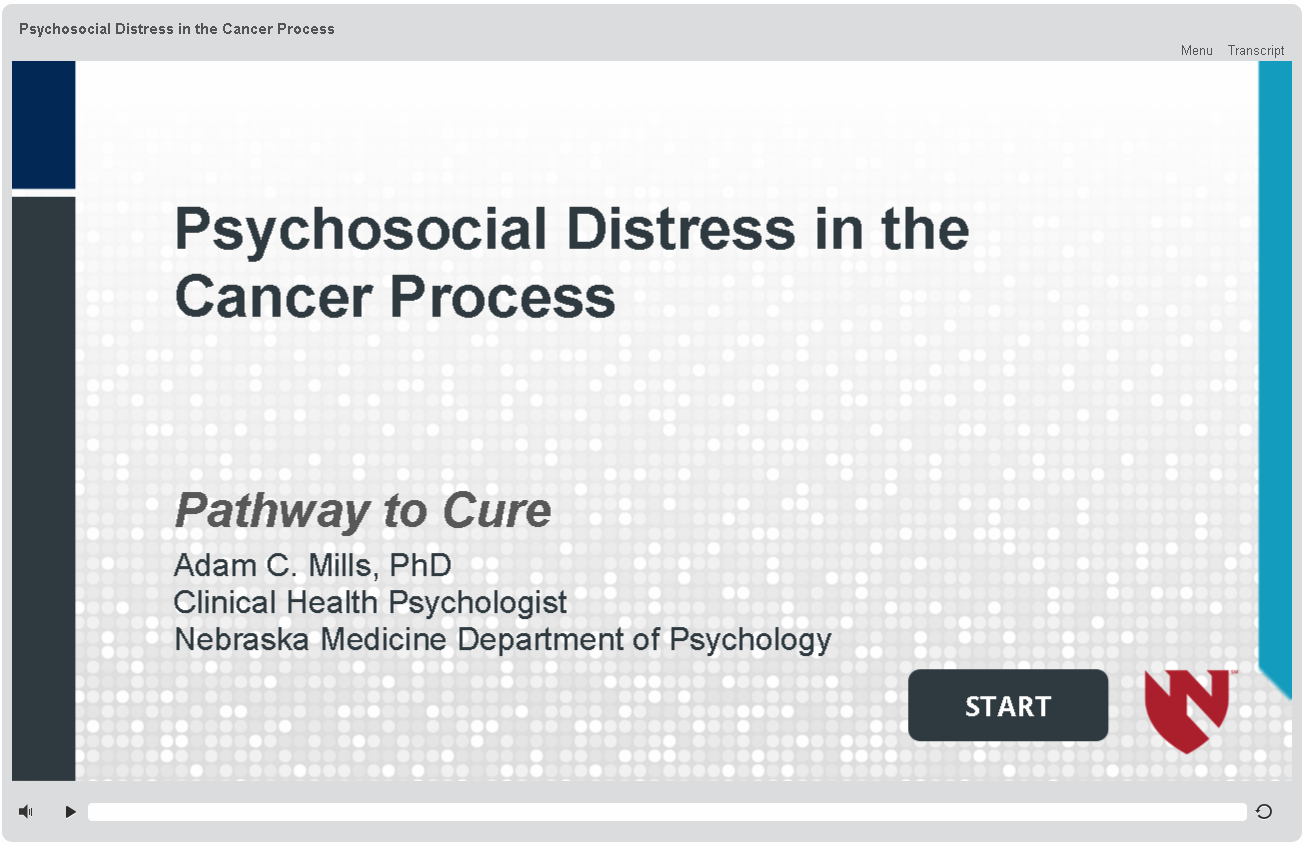Distress Reduction
Almost all people diagnosed with cancer experience some amount of distress.
What is Distress? Distress is the term used to describe the unpleasant experience people have that affects them mentally, physically, socially and/or spiritually when they have cancer. Distress can make it hard to cope and affect how a person and their family members think, feel and act.
Most people with cancer experience a mild level of distress. But, around 30% and as high as 60% of women with breast cancer experience a more severe distress that can last much longer, sometimes years past cancer treatment and may lead to diagnosable problems like anxiety or depression. Younger women are more likely than older women to experience distress.
People with cancer-related distress are NOT “going crazy” and it is not a failure to accept help for distress. Actually, it is your RIGHT to receive assessment and recognition of your distress symptoms and referral to in-person counseling, support groups or informational self-management programs that allow you to receive this care at home. You should EXPECT and not be ashamed to be offered help with distress after a cancer diagnosis. Distress changes in degree and what may be causing the distress over time, but simply having treatment most of the time will not solve distress.
- Worry, anger, fear about cancer and cancer’s affect on your family and plans.
- Depression and/or anxiety
- Difficulty sleeping, loss of appetite
- Inability to concentrate or thoughts of cancer or fears that recur over and over
- Questioning the meaning of life, death, and illness
- Difficulty interacting with people (avoiding or role issues in family or at work)
It is usually not helpful to “put on a mask of happiness” in front of family and friends if you are really having these symptoms. It is better to find people with whom you can share your thoughts and feelings.
You will likely receive a form when you visit your cancer center that asks you about how much cancer is bothering/distressing you and in what ways. Please be honest – the team is there to help – we can only help if we know your concerns.
Scenario & Questions:
Sandy is a 45 year old woman diagnosed with a new triple negative invasive ductal breast cancer. She has a 10 year old daughter and 7 year old son and she works at an accounting firm with primarily all men. As the days after her cancer diagnosis go on, she worries about how to tell her boss she needs time off for surgery and chemotherapy. Will he have to tell her co-workers? Should she tell her co-workers? In the meantime, she tried to explain “cancer” to her children and though her daughter recalled one of her teachers had cancer and is doing well, her son is very worried and began wetting the bed again. Sandy cannot concentrate at work and worries about making mistakes. She also fears dying of breast cancer and leaving her children? She feels anxious all the time, but also has difficulty getting out of bed.
- Would you expect that given Sandy’s story that she is distressed? What are her stressors? What are her symptoms?
- What would you recommend for Sandy?
Watch the Video on this page to learn more about genes associated with breast cancer, genetic testing, and answers to these and other questions.
Also go to the Research tab to learn more about the distress self-management program for women CaringGuidance After Breast Cancer Diagnosis to learn how you/your patients can gain access to this free at home program.
